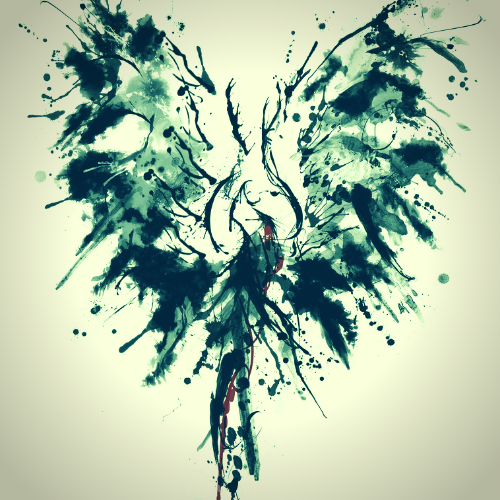The inside of his mouth was so arid that he couldn’t swallow the excess saliva without difficulty. Instead, he would let it trickle down his hot throat trying to keep it moist. The wet would only hit his tonsils before it stopped, leaving him trying to choke it out as breathing became difficult. What was left after that dripped off his lips as his back arched in a desperate plea for air to enter his laboring lungs. His fingers clutched the dark green beads on an old rosary. His cracked lips moved noiselessly in prayers to a god who hadn’t seen fit to listen to him before and now, in his darkest hour, was still silent. He wasn’t going to give up just yet on his Savior. He’d gotten this far. He couldn’t assume it was time to give up. God didn’t reward those who strayed from His path when the chips were down. That’s why there would always be tests. Job had been put through far worse and his faith was firm. Doyle knew that he was going to survive this and, he believed, he’d become a better man for it. Now wasn’t the time for him to go home. He pulled the thin, threadbare blanket over his body as he lay on the dirty tenement floor. His skin burned with a fever that covered his body in a hot sweat. It didn’t cool him, but left a foul smell. His rich hazel eyes watched the day succumb to the starless urban sky.
He wasn’t so much watching the fall of night. He was watching the end of his life.
His mortal thoughts twisted grotesquely as the fever ate into his brain and stole his memories. He licked his lips trying to hold on to what he could remember. He had been born a world away from this squalor. The only boy in a family of seven, born into the life of a modern day serf to the English field bosses. He didn’t have many choices in professions. Like his father, he had become a farmer. Even then he was different from the others he knew. Doyle could read and write. His aunt was a nun and had taught her only nephew how to be literate because that was how the power was going to shift in her mind. The next generation would belong to the Lanagans and they couldn’t take that greatness if they couldn’t read or write. His father had thought this a waste of time. He’d never learned how to read and they were fine. Doyle hadn’t really cared. There was something special about being able to read and that made him feel different. More importantly, it was his escape from a mundane existence even only for a little while. Doyle had wanted out of that life; he had wanted something better.
Doyle was handsome by the standards of the day even if he didn’t realize it. His reddish brown hair had a fine wave that was kept neat. He wasn’t fat, but thick with farm-toned muscles along his awkward frame. He had deep-set hazel eyes that accented his Gaelic features like mossy gems. What made him most attractive, though was his plain and soft speech. He could have been boorish like his father and his uncles, but Doyle was pleasant and considerate which had made him a hit with his aunts and mother.
He wasn’t into politics. Everyone seemed to have a thought about the state of political affairs. His fathers and his uncles were always complaining about this, that and the other. The English wanted this and if they could force a hand, they could get it or the government in Dublin had sold them out. That just wasn’t him. Doyle’s opinions were his and he didn’t have to share them. He knew things weren’t great, but what was getting wound up about it going to do? Challenge authority? They hanged the men who did things like that. The old men weren’t doing anything to fix the world. They just sat and talked and swore at the government. Doyle knew that things were bad, but he just had to wait. Things would change for the better.
That was before 1847.
